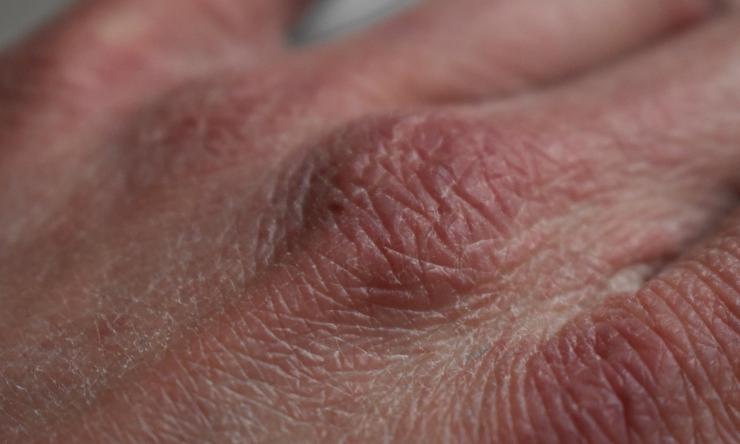Keeping your skin moisturized in cold, dry weather
Dry skin is a common companion during end-of-year festivities, but why is our skin more prone to losing hydration during this time? A dermatologist with Baylor College of Medicine breaks down the causes of dry skin in cold weather and habits to keep your skin healthy.
“Dry skin occurs when stratum corneum lipid content is decreased, leading to decreased water-binding capacity,” said Dr. Vicky Zhen Ren, a dermatologist and assistant professor at Baylor. "Skin tends to be drier when the weather is less humid, so individuals should moisturize at least twice a day, if not more often.”
If you are experiencing seasonal dry skin, moisture is the key to combating it. Ren suggests a few strategies:
- Moisturize your skin with an ointment or cream moisturizer as opposed to a lotion, as lotions have higher water content and do not contain as much of the important agents required for preventing dry skin
- Use a humidifier in the home during the dry season
- Wear clothing that adequately protects the skin from the wind and cold
- After a shower or bath, gently pat dry and apply a moisturizer to damp skin to lock in moisture
- If dry skin begins presenting as thick or scaly, topical agents that contain urea, lactic acid, ammonium lactate or alpha hydroxy acids may be beneficial but can be irritating if fissuring or cracking is present
- Avoid hot, frequent showers or baths longer than 5 to 10 minutes and opt for lukewarm water temperatures instead
“Remember, not moisturizing will always lead to dry skin,” Ren said.
Dry skin can impact anyone; however, people suffering from eczema may be especially susceptible to weather changes. Individuals with eczema tend to have more water pass from the dermis through the epidermis and evaporate, causing dry skin. This affliction is more commonly seen in children under 5 but also occurs in adults.
Ren also warns individuals to be aware of their skin habits, as dry skin can be due to underlying issues, such as thyroid disease, kidney disease, liver disease or cancer. If diligent adherence to good dry skin care habits is not helping or if the skin is severely inflamed, fissured and/or crusted, Ren advises seeking out a dermatologist for guidance.










